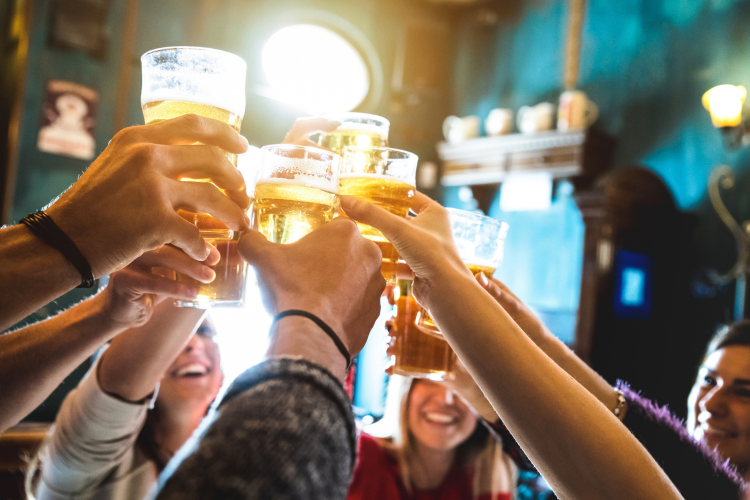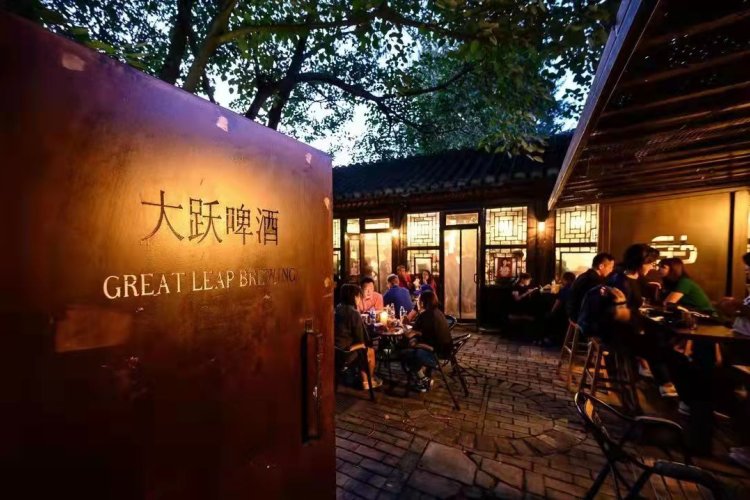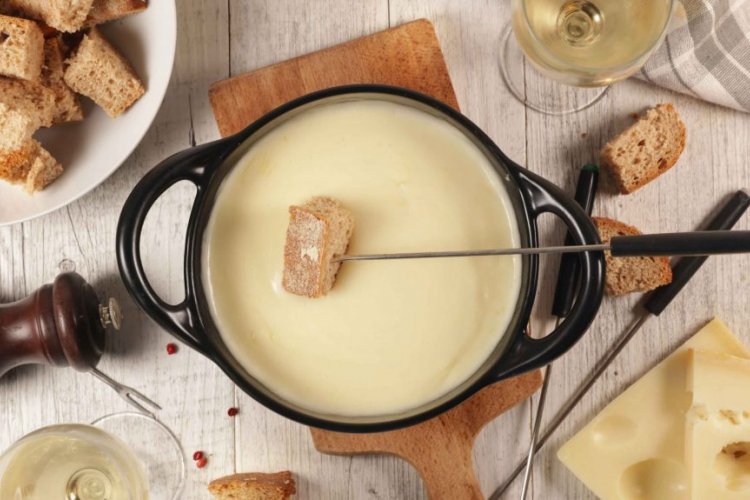China’s Favorite Herbal Tea Brand Starts Selling “Healthy” Beer, Causing Backlash
A small corner of China’s internet has been up in arms recently over news that the country’s favorite herbal tea brand, Wang Lao Ji (王老吉 wánglǎojí), has begun to sell beer.
Branded as 吉啤 jí pí ("auspicious beer"), on the surface, the move appears to be a stroke of marketing genius. Having already cornered a decent portion of the non-alcoholic beverage market – Wang Lao Ji has become near-ubiquitous in hotpot restaurants thanks to its “heat-relieving” properties – beer seems like the next obvious step towards liquid domination.

On top of that, they’ve apparently invented the world’s first “healthy beer,” side-stepping all the negative effects that come from drinking beer such as a beer belly, gout, increased urination, headaches, the degradation of your looks, and malnourishment.
Unfortunately, the fine people of China are under no illusion that drinking copious amounts of beer does not often correlate with pristine, healthy living. Just ask the Germans, whose century’s old “pure German technology” Wang Lao Ji's beer claims to utilize.
In short, stupid, the people ain’t. And so instead, Wang Lao Ji is being attacked on all fronts; not only has the brand seemingly lost its way, shamelessly trying to cash in of people’s growing love of a cold one to wash down endless oil and chilies, it has damaged the reputation of its signature product, one that many have enjoyed since childhood.
Even more egregious is that Wang Lao Ji has either stumbled across the perfect beer – one that has eluded mankind for millennia and will potentially extend the lives of lushes everywhere – or it’s solid proof that they still do not care about correct advertising protocols. That’s after already being punished in 2016 for not complying with the relevant labeling standards of the Food Safety Law of the PRC.

Regardless, none of this matters much if their product doesn’t taste good… which, sadly, it does not.
Of the four varieties – tallboys (12°P, 4.8 percent ABV), 12oz cans (9°P, 3.3 percent ABV), bottles (8°P, 2.8 percent ABV), and a 12oz can “craft” version (also 8°P, 2.8 percent ABV) – we chose the former. The taste can best be described as a nondescript wheat beer that’s overly sweet on the nose, lacking body, and has almost no discernible aftertaste (a good thing, perhaps?). More disconcerting is that it's called a "puree beer."
To be fair, it probably does go down pretty easily alongside hotpot but I wouldn’t go out of my way to drink one again. I also could never be made to drink enough to corroborate its espoused positive effects on gout, peeing, and beauty. For that reason, the beer’s strongest panacea-like quality may be its inherent ability to repulse anyone from drinking it.
Unfortunately, we bought a 12-pack, so we'll be looking to pass the rest off on friends, or preferably, enemies.

So where does Wang Lao Ji go from here? For years, the Guangzhou brand has done well to harness its brand recognition and nearly "200 years of history," riding the sweet spot between selling a TCM-style beverage that is also a direct competitor to the biggest soda companies around. This latest move is then widely seen as a company losing its grip on a fast-changing market, where younger consumers are increasingly wooed by savvy advertising and no longer beholden to time-honored products.
Unfortunately, in its attempt to branch out, Wang Lao Ji may have damaged its main claim to fame and in an already saturated market is unlikely to attract many new fans past a gimmick-level enjoyment. To borrow from their English slogan, it seems that the company is itself suffering from a “Fear of internal heat.”
READ: Yanjing Gets Crafty with New Line of Beers
Images: Tom Arnstein






